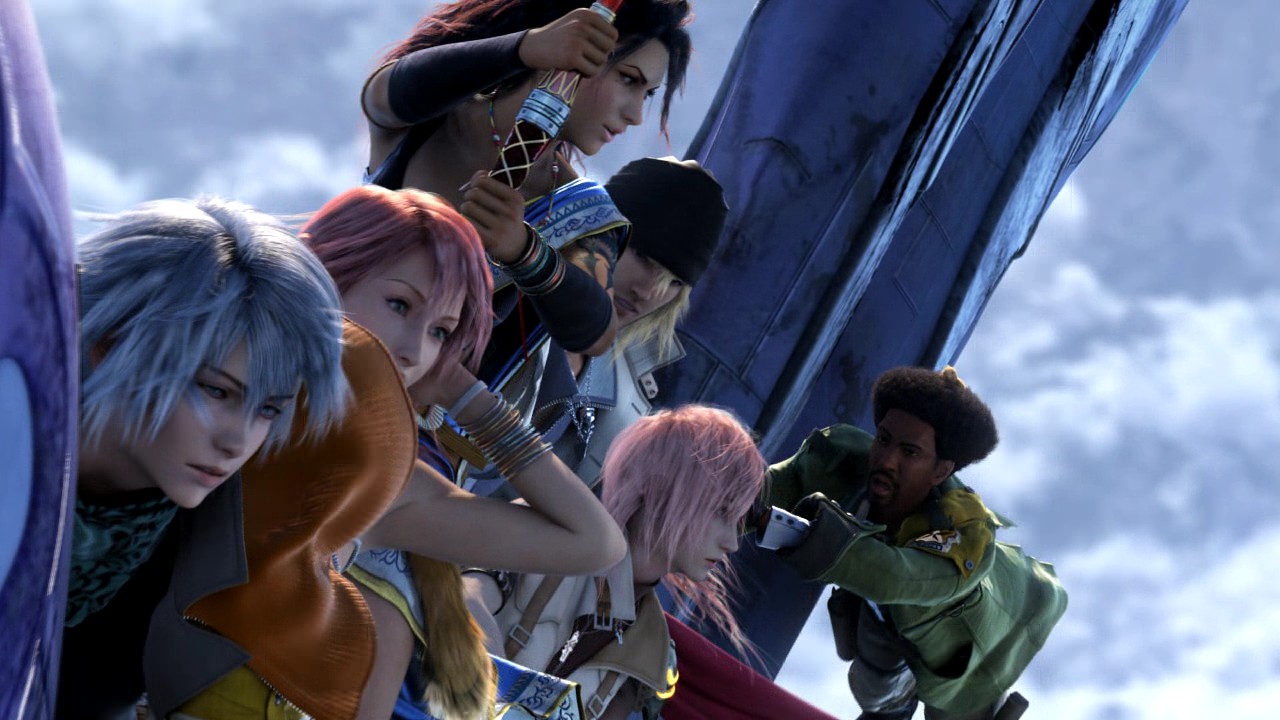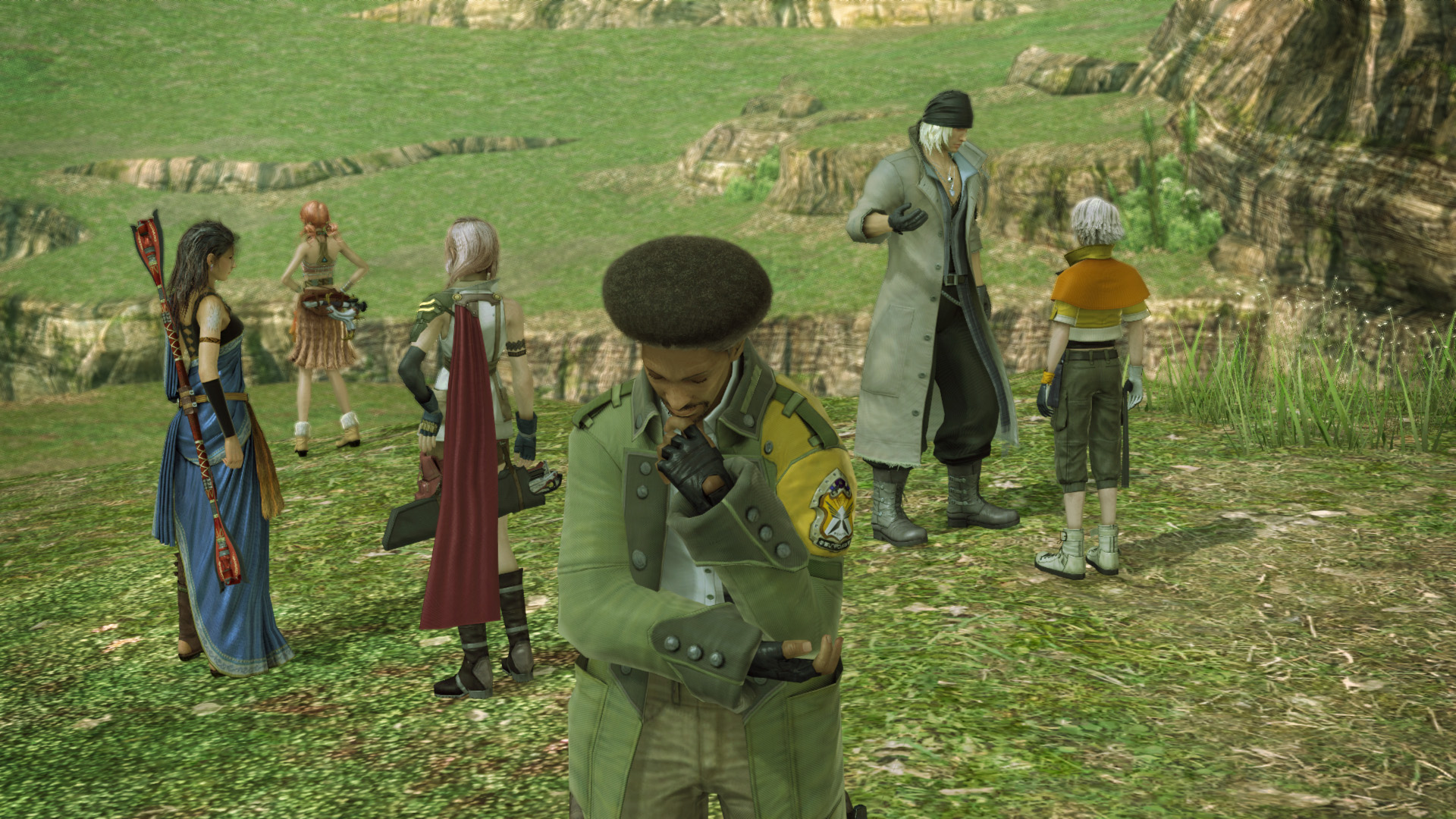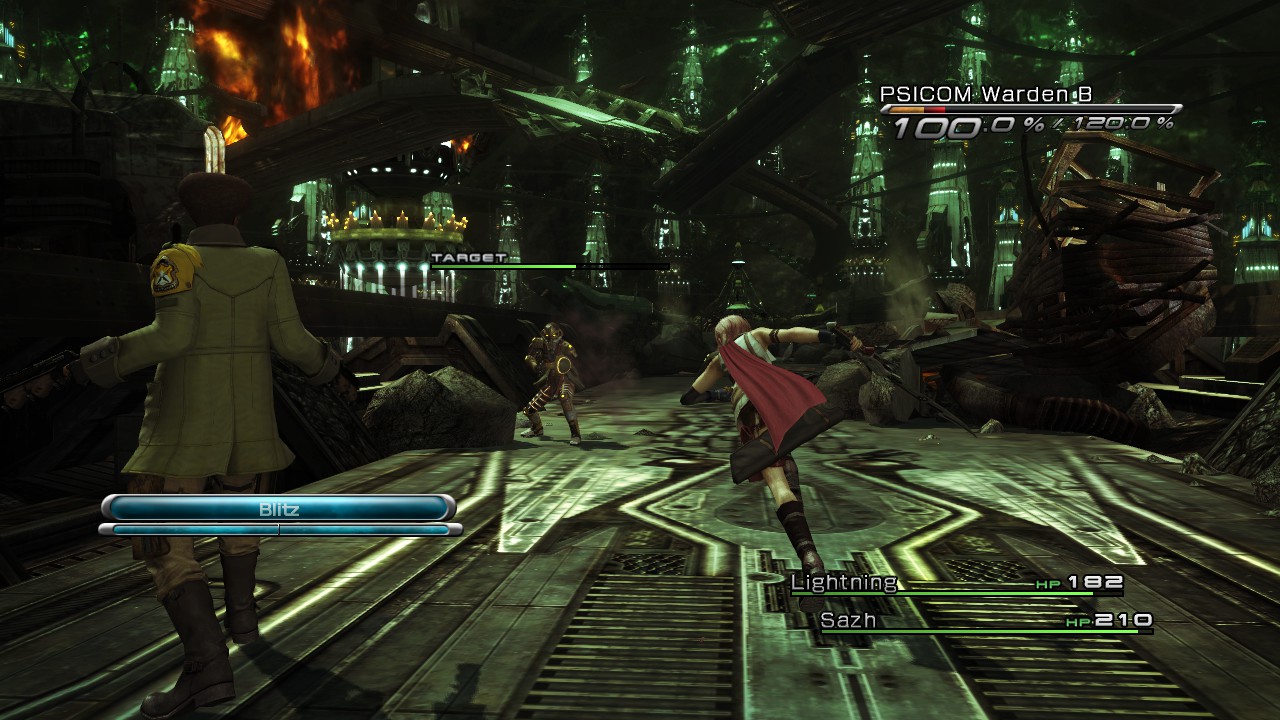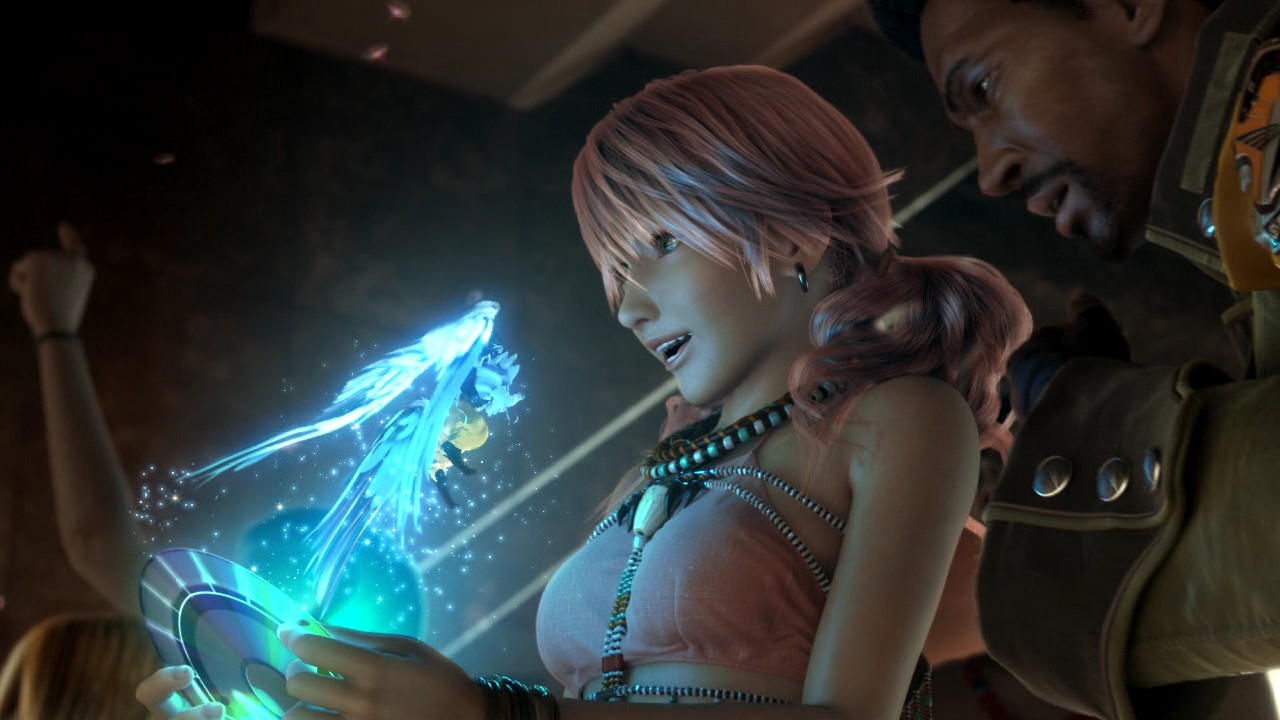Behind Final Fantasy 13's linearity lies the series' most complex cast
A flawed family.

One of the best lines in Final Fantasy 13 is uttered by its narrator, Oerba Dia Vanille, when she says, "Maybe we’d fall short. Maybe we’d never even come close. But someone, someday, would know we’d tried."
The reception of the Final Fantasy 7 Remake, an updated version of the most beloved Final Fantasy, makes me think of Final Fantasy 13 and how its legacy has shaken out in comparison. Like Final Fantasy 8 (the only other instalment that can contest it for the title of the most divisive Final Fantasy) it took risks and, as a result, fell short of the expectations of many fans. But it's important to know that it tried and that it resonated with many, myself included. I've played most Final Fantasy games, and while Final Fantasy 13 isn't perfect, as I give it a reinstall and dive back into it, I'm reminded why it’s one of my favourites: namely, its excellent cast.

While every Final Fantasy has memorable characters, not every game has succeeded in developing all of them in meaningful ways. Final Fantasy 13 strikes a perfect balance; the cast is large enough to form a web of dynamics that continuously develop in fascinating ways, while small enough that everyone gets considerable screen time and complexity. The game’s characters are its pillars, especially given its infamously tricky to follow story.
Final Fantasy 13 follows a group of six people who are branded L’Cie, beings who must serve demigods known as the Fal’Cie. Becoming L’Cie seals their fates; if they don’t complete their Focus they become ghoulish husks known as Cie’ths. If they do complete their Focus, they are crystallised and can only be restored to their mortal forms under specific circumstances. Together they set out to fight the Sanctum government, which is purging L’Cie, and figure out their Focus. At the beginning the exposition dumps lore and terminology on the player without spending much time to explain it all, and this is one of its flaws. However, once you take the time to really understand them, the game rewards you with a story led by what is still the most nuanced and interesting cast in the series’ history.
The game achieves this feat through constantly changing the makeup of your party and having you play as everyone despite Lightning being the protagonist. It splits up specific characters whose narratives depend on each other into pairs, developing them as compelling individuals and partners in the process. Later on these duos join up to become a larger group that stands together throughout the many revelations and hardships that plague their journey. The events of the story force them to come to terms with their flaws, face the consequences of their past and present mistakes, and have the difficult conversations that gradually change them into better, more complete people.
Lightning resembles Cloud and Squall in that she’s a no-nonsense soldier who deeply struggles with emotional vulnerability. Following his mother’s death, Hope is a teenage boy who gets caught up in a war he never wanted to be part of. Through his tendency of proclaiming himself as a saviour to mask his insecurities and failures, Snow is a play on the classic hero archetype. Fang is a Dragoon who wields sarcasm, cockiness, and assertiveness as expertly as her lance; a type of character that isn’t assigned to women in JRPGs often. Sazh is a kind and devoted father dedicated to saving his son and, even now, a rarity among JRPGs as a black main character who’s written like a person rather than a caricature. Vanille is a subversion of the happy girl archetype, utilising a bubbly facade to mask the cynicism and darkness that lurks underneath.
It’s not easy to immediately see how intimately these characters are connected to each other. But by the end, this group of wildly different individuals united only through their base mission of escaping persecution becomes a family that knows the flaws and virtues of its members.
The biggest gaming news, reviews and hardware deals
Keep up to date with the most important stories and the best deals, as picked by the PC Gamer team.
Paradigm shifts

Next to Final Fantasy 13’s linearity its most controversial aspect is the battle system. Its core concept is switching between Paradigms, specific classes you assign to each character. Every party member can access every one, but each is most well-suited to certain classes. You have a limited number of slots for Paradigms, so you have to envision various situations in advance to prepare yourself.
You might want to start a boss battle with a Commando and two Ravagers to build up and maintain a stagger percentage on them. If you’re low on health after a devastating attack, you’ll want to rapidly switch to a Paradigm composed of two Medics and a Sentinel to heal up your party and enhance defences. While you’ll spend a significant time using the Auto- Attack command between Paradigm shifts, different situations call for different Paradigms, so the system isn’t as passive as you might assume. It requires you to think on your feet and to do so quickly.
It’s strategic, but in an admittedly unorthodox way. Against challenging enemies, it can be really good fun. Just as you’re not bound to playing just one character, you’re not restricted in the classes you can assign to them—so if you want to make tiny 14-year-old Hope into a Sentinel who stands firm on your frontline, you can.
The promise

One thing that helps define all Final Fantasy games is the quality of their music. There’s a reason why tickets for Distant Worlds, the Final Fantasy orchestra concert, often sell out as it tours venues all across the world.
While most soundtracks in the series have been primarily composed by the iconic Nobuo Uematsu, Masashi Hamauzu takes the rein on Final Fantasy 13’s.
Yet I’d go as far as to say it’s the best in the entire series, with the soundtracks for FF 8 and FF 14: Shadowbringers being the only possible contenders for that illustrious title. The soundtrack is as diverse as the locations you’ll travel. Some, like Blinded by Light, are thrillers that trigger a surge of adrenaline that gets you on your feet in the middle of battle; some, like The Promise, have beautiful piano accompaniments, perfect for relaxing or studying; and some, like Dust to Dust, are so wistful and magical that I struggle to convey the feelings they stir in me in words.
Final Fantasy as a series is never an easy one to summarise, and that’s in large part due to atypical entries like Final Fantasy 13, Final Fantasy 12, and Final Fantasy 8. While the latter two are generally remembered more fondly, it’s FF 13 that solidified my love for the series. In being the first high-def Final Fantasy, it was eager to take risks that most sequels wouldn’t dare commit to. Time hasn’t dulled that rebellious spirit in the least.

